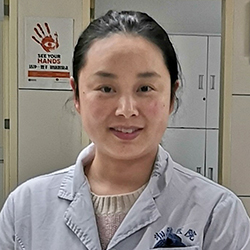Researchers from the University of British Columbia (UBC) and the Central South University (CSU) in China have for the first time identified a gene that increases the risk of Alzheimer’s disease.

Dr. Weihong Song
In the study, published recently in the journal JCI Insight, the researchers found two mutations in the gene endothelin-converting enzyme 2 (ECE2) which impaired its ability to break down amyloid beta protein. These mutations were present significantly more often in people with Alzheimer’s than in controls—suggesting that the genetic variants in ECE2 could be causing, or at least contributing to, Alzheimer’s symptoms.
“Since amyloid beta protein is unique to Alzheimer’s disease, the majority of drug development was targeted here,” says Dr. Weihong Song, who is the Canada Research Chair in Alzheimer’s disease, professor in the faculty of medicine’s department of psychiatry, Jack Brown and Family Professor, and director of UBC’s Townsend Family Laboratories. “If we can prevent amyloid beta protein build up or at least find a way to get rid of some of it, we could prevent and treat the disease.”
Dr. Song’s laboratory at UBC collaborated with Dr. Lu Shen’s team at Xiangya Hospital at CSU for the study. The study’s lead author is Dr. Xinxin Liao who completed a joint PhD at UBC and CSU.
The scientists looked at 741 people with late-onset Alzheimer’s and compared them to controls. Unlike early-onset which affects people as young as 30, late-onset Alzheimer’s is the most common form of this disease, generally affecting individuals after the age of 65.

Dr. Xinxin Liao
Dr. Song’s lab focuses their efforts on looking at the role amyloid beta protein plays in Alzheimer’s. It’s well established that increased production (or reduced degradation) of amyloid beta protein results in the formation of neuritic plaques in the brain, which is a hallmark of Alzheimer’s disease neuropathology.
The team injected the mutated forms of the ECE2 gene into mice. They found mice with the mutation had increased levels of amyloid beta protein and plaque formation, and also exhibited some signs of Alzheimer’s such as memory loss. When they expressed the wildtype form of the gene in the mice (i.e. the non-mutated form), amyloid beta protein levels decreased and the mice recovered some of their learning and memory deficits.
“These findings mean that ECE2 is a risk gene for people to develop Alzheimer’s later in life,” says Dr. Song. “Moving forward, we can try to target this gene and increase its expression as a way to treat Alzheimer’s.”
“Moving forward, we can try to target this gene and increase its expression as a way to treat Alzheimer’s.”
Dr. Weihong Song, Canada Research Chair in Alzheimer’s Disease
The researchers are now screening further for genetic mutations in a larger dataset as a way to validate these findings and to search for other variants in the ECE2 gene that could be contributing to Alzheimer’s symptoms.